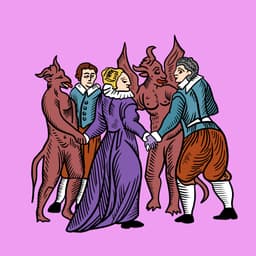German False Friends
German False Friends or False Cognates are a deceiving bunch.

False friends (or false cognates) are pairs of words in two languages that look and/or sound similar, but have different meanings. False friends are common between English and German, and it’s easy to get tripped up if you don’t understand the differences. In this blog post, we’ll be exploring the various types of German-English false friends and how to avoid confusing them.
German False Friends
German-English false friends, also called "faux amis", are words that look similar but in fact have different meanings. This can be deceiving to English native speakers learning German, as the words appear to have the same meaning and root.
For example, the German noun das Gift looks like the English word gift, so you might think the meaning is similar too. However, it actually means poison - so that could potentially lead to some very awkward situations.
False friends can be confusing for English native speakers learning German, as the similarities and differences between the two languages are not always easy to spot. Even experienced language learners can sometimes fall trap to false friends, so it pays to be extra careful when using German words that look similar to English ones.
German False Friends List with Pronunciation
Here are a few examples of German-English false friends. On the left is the German word and on the right the correct English translation. You can probably guess why these words might be confusing for English speakers:
German false friends can be confusing and can lead to errors in communication if not understood correctly. It is important for English native speakers learning German to become familiar with these words and their meanings. This can help to prevent any misunderstandings and ensure that their German is understood accurately by native German speakers.
German False Friends examples
Let's now go through some of the words on this list and see how they're used in German and what makes them so deceiving to English speakers.
1. Das Gift
The most famous German-English false friend is probably das Gift. Gift is German for 'poison'.
Let's have a look at an example:
Nadar wants to give Layla a nice little gift, a Geschenk in German. But he in fact says that he's brought her some poison: Will Layla invite Nadar for a second date?
2. Der Rat
For many English speakers, the German word Der Rat is another false friend. Rat nothing to do with rodents (that would be die Ratte), but translates as 'advice'.
This explains the above misunderstanding. Layla was asking Peter for advice - not for a rat.
3. Der Chef
4. Die Rente
How to Avoid Confusing False Friends
It’s easy to get tripped up on German-English false friends if you don’t know the difference between them. Here are some tips to help you avoid confusing them:
Learn the Difference: The best way to avoid confusing German-English false cognates is to learn the difference between them. Make sure to look up the words in a dictionary and learn the correct meaning in each language.
Use a Dictionary: Another way to avoid confusing German-English false friends is to use a dictionary when in doubt. A dictionary can help you figure out the correct meaning of a word and avoid confusion.
Use Context Clues: Finally, you can also use context clues to figure out the meaning of a word. Pay attention to the context of the sentence and look at the other words used. This can help you figure out the meaning of a word and avoid confusion.
Conclusion
German-English false friends can be tricky to spot and can lead to confusion if you don’t know the difference between them. To avoid confusion, make sure to learn the difference between false cognates and words with different meanings, use a dictionary when in doubt, and use context clues to figure out the meaning of a word. With these tips, you can easily avoid confusing German-English false friends.




